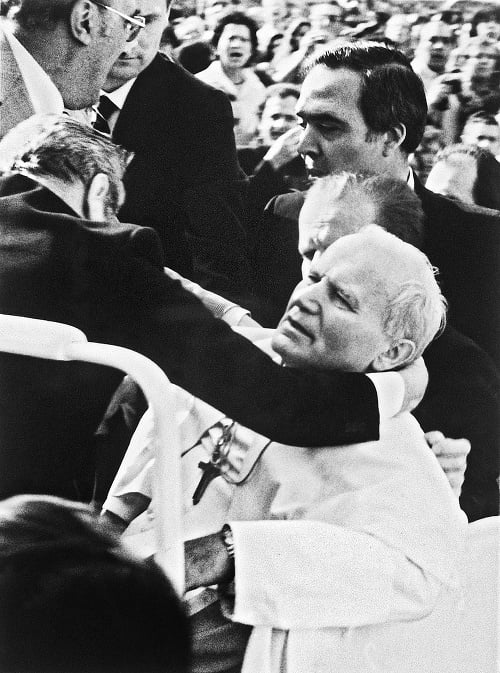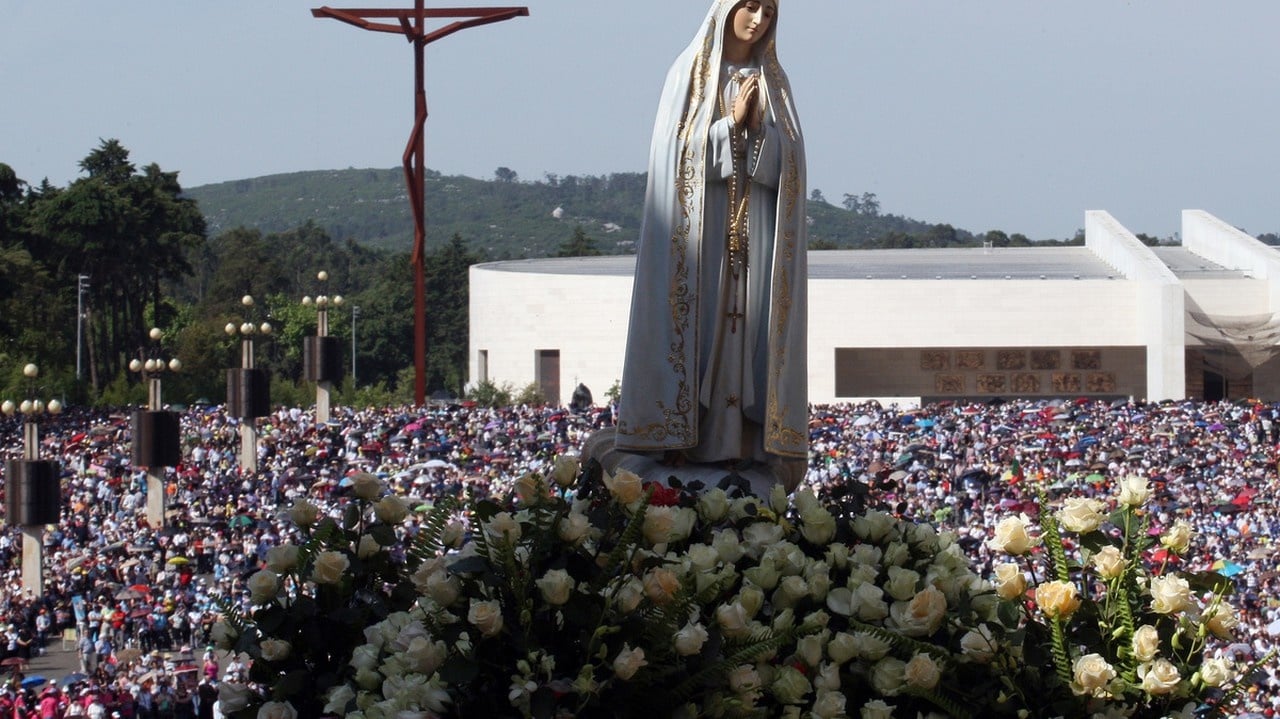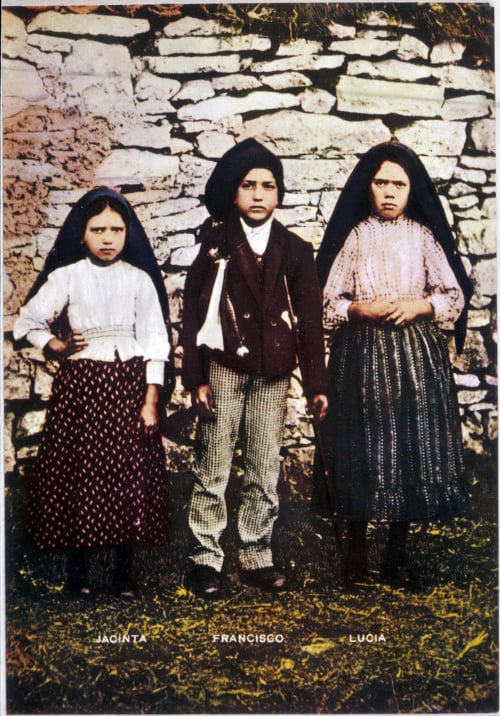We describe Fatima’s events as recorded by the memorializes and passed down among the faithful. It all started back in 1916. That’s when an angel appeared three times to three small children – Lucia (10), Francis (9) and Hyacinth (7). He told them that Jesus Christ and the Virgin Mary had big plans for them.
Brighter than the sun
On May 13, 1917, children drove a flock of sheep to a remote ravine. In the afternoon, they suddenly saw two bright flashes of light and a “Lady in white, brighter than the sun” hovering over an oak tree. “I come from heaven,” she spoke to the frightened children, assuring them that she would not harm them. She told them to return to that place on the 13th of every month for the next half-year.
In June, fifty villagers also came to the place of apparitions, who also saw flashes of light where the children were praying. Among other things, the Virgin Mary then ordered the eldest Lucia to learn to read. She chose her as the mediator of her messages to the whole world, and she was the only one of the three children who lived to adulthood.
Prophecies
In July, three prophecies were revealed to the children. The first was a vision of hell. ” The Virgin Mary showed us a great sea of fire that seemed to be under the earth. The demons and souls, immersed in that fire, whereas if transparent and black or bronze, in the form of people they moved into the fire, carried by the flames that came out of themselves…” Lucia described the apparition. The Virgin Mary should have answered them: “You have seen hell, where the souls of poor sinners fall.” To save them, God wants to establish veneration for my Immaculate Heart in the world…”
Evil from Russia
The second prophecy predicted the terrifying events of the 20th century: “The war ends, but if they do not stop insulting God, during the pontificate of Pius XI. Another, even worse, one will begin… To prevent this, I will ask for the consecration of Russia to my Immaculate Heart… If they accept my demands, Russia will be converted and they will have peace. If not, he will spread his delusions throughout the world, spreading wars and persecution of the church. The good will be tortured, the Holy Father will suffer a lot, many nations will be destroyed….”

At that time, no one could have guessed that a certain Lenin was preparing a Bolshevik coup in Russia and that communism would later spread to many countries of the world. We don’t need to talk about how bad it was. According to the Black Book of Communism, 100 million people lost their lives in the name of this ideology.
The Pope in danger
While the first two prophecies were made public, the third remained a secret until 2000, when Pope John Paul II declassified it. It was in the scene described by Lucia that his assassination was predicted.
” And in the immense light that is God, we saw… A bishop dressed in white, we had a premonition that it was the Holy Father. Various other bishops, priests, men, and women religious ascended a steep hill, on the top of which was a large cross made of unhook logs, as if they were made of the bark of a cork tree. The Holy Father, before he arrived there, passed through a large city half-ruined and with uncertain steps, tormented by pain and suffering, he prayed for the souls of the dead whom he met on his way. When he came to the top of the hill, kneeling under the great cross, he was killed by a group of soldiers, who shot him with various weapons and arrows, and in the same manner died one after another bishop, priests, men and women religious, and various lay persons, men and women of various classes, and position…”
John Paul II, he was seriously shot by the Turkish assassin Mehmet Ali Ağca, paid by the Bulgarian Secret Service. It happened in St. Peter’s Square on May 13, 1981 – that is, on the anniversary of the Fatima apparitions.







